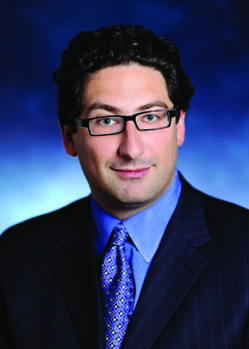
Bram Abramson
Open Web Fellow, Mozilla Foundation
Panel 3: Responsibility for Defamation and the Problem of Intermediaries
Bram Abramson is currently an Open Web Fellow with Mozilla Foundation, hosted by the University of Toronto’s Munk School of Global Affairs’ Citizen Lab; and serves as a director of the Commission for Complaints for Telecom-television Services, panel member with the Canadian Broadcast Standards Council, and lecturer at Ryerson University’s School of Creative Industries. Past roles include head of law, regulation, and public policy at TekSavvy, an independent telco; media and telecom lawyer at McCarthy Tétrault; and senior analyst at the CRTC (Ottawa) and TeleGeography (Washington, DC).
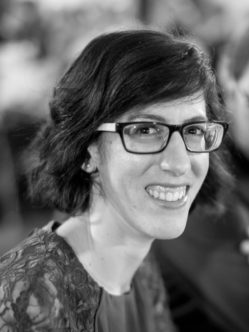
Christina Angelopoulos
Centre for Intellectual Property and Information Law (CIPIL), University of Cambridge
Panel 3: Responsibility for Defamation and the Problem of Intermediaries
Christina Angelopoulos is a lecturer in intellectual property at the University of Cambridge and a member of CIPIL (Centre for Intellectual Property and Information Law). She specialises in copyright, with a particular focus on intermediary liability. From 2011 to 2015, she wrote her PhD on the European harmonisation of the liability of online intermediaries for the copyright infringements of third parties at the Institute for Information Law (IViR) of the University of Amsterdam. Her thesis was published by Kluwer Law International in 2016 under the title “European Intermediary Liability in Copyright”.
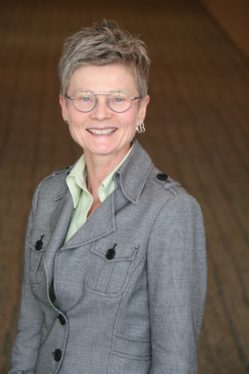
Jane Bailey
Full Professor, Common Law, Faculty of Law, University of Ottawa; The eQuality Project Co-Leader
Panel 2: The Harms and Values Underlying Defamation Law in the Internet Age
Jane Bailey is a Full Professor of Law at the University of Ottawa where she conducts research and teaches about the intersections of law, technology and equality. She and Dr Valerie Steeves co-lead The eQuality Project, a 7-year SSHRC funded partnership of researchers, educators, advocates, civil society groups, and policymakers who are interested in examining the impact of online commercial profiling on children’s identities and social relationships. Jane leads the Project stream focused on cyberviolence and vulnerable youth. Among her proudest professional achievements are co-leading The eGirls Project (with Valerie Steeves), creating and teaching a first-year law course called Cyberfeminism and, in her former life as a litigator, assisting as counsel in the first online hate propagation case to be heard by the Canadian Human Rights Tribunal. Jane was honoured to receive the Canadian Bar Association’s 2015 Ramon John Hnatyshyn award for outstanding contributions to Canadian law and legal scholarship and to be named a Member of the New College of the Royal Society of Canada in 2016. She has presented her work on tech-facilitated violence against women and girls, youth perspectives on online defamation, and girls’ experiences with privacy and equality in online social networks at local, national and international conferences, and in invited testimony before numerous parliamentary committees. In fall 2018 she will be a Visiting Professor at Hong Kong University and at the Royal Melbourne Institute of Technology in Australia.
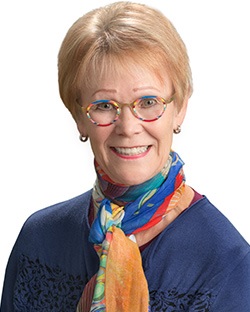
Jamie Cameron
Professor, Osgoode Hall Law School, York University
Panel 1: Rethinking Defamation Law: The Setting for Reform
Professor Jamie Cameron has been a full-time member of the faculty at Osgoode Hall Law School since 1984. She holds law degrees from McGill University and Columbia University, clerked at the Supreme Court of Canada for the Hon. Justice Brian Dickson, and was on the faculty at Cornell Law School before joining Osgoode. Today, Professor Cameron is one of Canada’s senior constitutional scholars, whose research and teaching interests focus on the Charter of Rights and Freedoms, freedom of expression and the press, the Supreme Court of Canada, criminal law, American constitutional law, and judicial biography. She has written extensively in these areas; has been the editor and co-editor of a dozen book collections; and has chaired and co-chaired many conferences and events. She has been a Director of the Canadian Civil Liberties Association for more than 20 years (and past vice-president) and has represented the CCLA in cases at the Supreme Court of Canada. She has been on the Board of Editors for the Ontario Reports for more than 25 years and is currently a member of the Advisory Board for the Centre for Free Expression (Ryerson University) and the Law Commission of Ontario’s Internet Defamation Advisory Board. Professor Cameron was appointed to the Ontario Review Board in 2013, and in 2018 was appointed to the Nunavut Review Board.
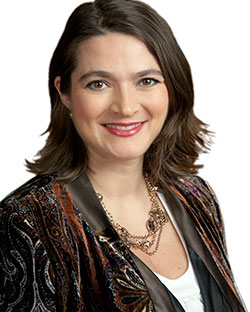
Giuseppina D’Agostino
Professor, Osgoode Hall Law School, York University
Panel 3 Moderator: Responsibility for Defamation and the Problem of Intermediaries
Professor Pina D’Agostino joined the Osgoode Hall Law School faculty in 2006 and brings creativity and passion to her role as Founder and Director of IP Osgoode, Osgoode’s flagship Intellectual Property Law and Technology Program. She is the Founder and Editor-in-Chief of the IPilogue (www.iposgoode.ca), the first IP law blog of its kind, and Founder and Director of Osgoode’s IP Intensive and the Innovation Clinic, the first legal clinic of its kind helping start-ups. Before her Osgoode appointment, she was recruited by the federal government’s Recruitment of Policy Leaders (RPL) program for the Department of Canadian Heritage and worked at the Copyright Policy Branch. She is the Editor-in-Chief of the Intellectual Property Journal (IPJ) and previously was an associate at a large firm in Toronto. Her research interests in the intellectual property, technology and innovation law and policy fields are wide-ranging and she is highly sought after as a public speaker and consultant. She is a cited authority at the Supreme Court of Canada and in various media, and is regularly called on by foreign and Canadian federal and provincial governments for advice. She testified before Parliament’s Legislative Committee on Canada’s ongoing copyright reform initiatives. She publishes on a range of issues and her two books, Copyright, Contract, Creators: New Media, New Rules and The Common Law of Intellectual Property: Essays in Honour of Professor David Vaver (edited with Catherine Ng and Lionel Bently) are widely available. Prof D’Agostino has been awarded various SSHRC grants for her work, more recently, “Triggering Innovation: Transnational Partnership for the Mobilization of Intellectual Property Policy and Practices” and “Fostering Innovation in Canada through Intellectual Property Law.” She is a Senior Fellow at the Centre for International Governance Innovation (CIGI), she serves as Director to the Alectra Inc. Board, Director to the Board of Trustees of the McMichael Canadian Art Collection and was recently appointed to the Smart City Advisory Task Force of the City of Vaughan. Prof D’Agostino is the recipient of various honours and awards, has a Masters and Doctorate in Law with distinction (University of Oxford), an LLB (Osgoode Hall Law School), HonBA (summa cum laude, York University) and is a member of the Law Society of Ontario since 2001.
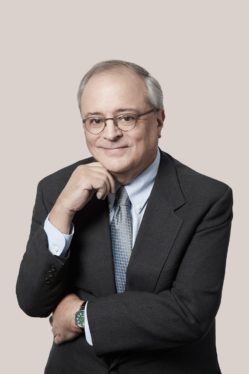
Peter Downard
Practitioner, Faskens
Panel 2 Moderator: The Harms and Values Underlying Defamation Law in the Internet Age
Peter Downard is a senior litigator and expert in defamation matters. With extensive experience acting as defamation counsel throughout litigation proceedings, he has appeared before the Supreme Court of Canada, Ontario Court of Appeal for Ontario, trials and numerous mediations and advisory matters. Peter also has comprehensive experience in commercial litigation and alternative dispute resolution.
Peter is the author of The Law of Libel in Canada, referred to as an authority on libel law in numerous court decisions, and of the volume Defamation in Halsbury’s Laws of Canada.
Peter was one of three appointed members of the Attorney General of Ontario’s Advisory Panel on Strategic Litigation Against Public Participation (SLAPP), whose work resulted in the enactment of the Ontario Protection of Public Participation Act 2015.
Peter has been repeatedly recognized as a leading practitioner in defamation litigation in Lexpert, the Lexpert Guide to the Leading US/Canada Cross-Border Litigation Lawyers in Canada, Best Lawyers in Canada, and by Benchmark Canada as a ‘Litigation Star’.
Peter also has extensive experience as counsel in a wide range of civil litigation, administrative proceedings and public inquiries.
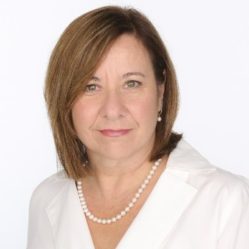
Kathy English
Public Editor, The Toronto Star
Lunchtime Debate on Front Line Issues: Unpublishing
Kathy English has served as the Star’s public editor since 2007. A veteran journalist, she has worked for six Canadian daily newspapers, launched websites for two Canadian media companies and is a former member of the faculty of Ryerson School of Journalism. The public editor’s office handles readers’ queries about accuracy and the Star’s journalistic standards as set out in its Newsroom Policy and Journalistic Standards Guide. The public editor looks into claims of error in all content on all platforms on which the Star publishes.
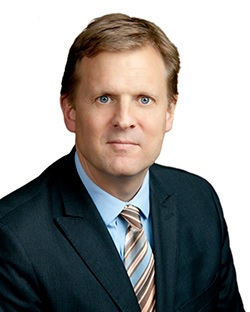
Trevor Farrow
Professor, Osgoode Hall Law School, York University
Panel 4 Moderator: Resolving Online Defamation in the Internet Age
Trevor C.W. Farrow, AB (Princeton), BA/MA (Oxford), LLB (Dalhousie), LLM (Harvard), PhD (Alberta), is a Professor at Osgoode Hall Law School, where he served as Associate Dean from 2014-2016. He is the Chair of the Canadian Forum on Civil Justice and was the founding Academic Director of the Winkler Institute for Dispute Resolution. Professor Farrow’s teaching and research focus on the administration of civil justice, including legal process, legal and judicial ethics, advocacy, globalization and development. He was formerly a litigation lawyer at the Torys law firm in Toronto. Professor Farrow has received teaching awards from Harvard University and Osgoode Hall Law School.
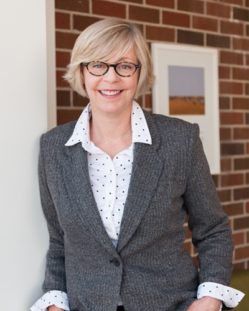
Sue Gratton
Research Lawyer, Law Commission of Ontario
Dr. Sue Gratton has been a research lawyer with the LCO since 2011. As Project Head, she has completed 2 LCO projects involving small estates and forestry workers. She is currently Project Head of Defamation Law in the Internet Age. Sue spent the first 12 years of her career as a research lawyer in private practice before completing a S.J.D. in administrative law and social policy at the University of Toronto, Faculty of Law. Sue has published in administrative law and constitutional law and has taught at the University of Toronto and Osgoode Hall Law School.
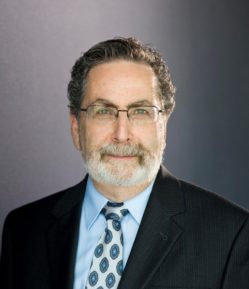
Ethan Katsh
Director of the National Center for Technology and Dispute Resolution and Professor Emeritus of Legal Studies at the University of Massachusetts Amherst
Panel 4: Resolving Online Defamation in the Internet Age
Ethan Katsh is the Director of the National Center for Technology and Dispute Resolution http://www.odr.info and Professor Emeritus of Legal Studies at the University of Massachusetts Amherst. He is co-author of the recently published Digital Justice: Technology and the Internet of Disputes (Oxford University Press, 2017). He has been an Affiliate Researcher at Harvard University’s Berkman Klein Center for Internet and Society and a Visiting Professor of Law and Cyberspace at Brandeis University.
Professor Katsh is a graduate of the Yale Law School and is widely recognized as a founder of the field of online dispute resolution (ODR). He conducted the eBay Pilot Project in 1999 that led to eBay’s current system that handles over sixty million disputes each year. He received the 2017 D’Alemberte-Raven Award from the American Bar Association Section of Dispute Resolution. This is the Section’s highest honor and recognizes outstanding service to the field dispute resolution. He has received the Mary Parker Follett award from the Association for Conflict resolution and a previous book he co-edited, Online Dispute Resolution: Theory and Practice, received the International Institute for Conflict Resolution book award for 2012.
Digital Justice explores how technology generates disputes, how it can resolve disputes and, ideally, how it can prevent disputes. Our technology-intensive environment provides us with conveniences, efficiencies and opportunities for innovation. At the same time, as the pace of change accelerates, as transactions and relationships increase in number and in kind, as social media become anti-social media, as algorithms increasingly shape our decisions, and as the systems we rely on become ever more complex, there are more and more problems and disputes. Quite rightly, it has been written, “conflict is a growth industry.”
With effort on our part, technology, in the form of Online Dispute Resolution (ODR), can also make conflict resolution and prevention a “growth industry.” Last year, Alibaba handled more than 100 million disputes. There are ambitious plans for an online small claims court in the United Kingdom and ODR projects are operating in the Netherlands, Canada, China and elsewhere. The United States, unfortunately, is behind other countries in developing online courts and easy online access to justice systems.
Can access to justice occur at the click of a mouse? Can we ask Siri, Google, Alexa, etc. “Please settle my dispute with so and so?” Such a request is much more challenging than saying to one’s phone, “Uber, please come and take me to the airport.” But a dispute resolution system assisted by artificial intelligence will, hopefully help us improve access to justice. In some places and for some disputes, an electronic device will replace the courtroom door as the entry point to formal and informal online dispute resolution processes. As this virtual door opens, we will be challenged, as we are with physical doors, to make sure that it is always open and inviting, meets the needs of the public and is much more accessible than our current justice systems.

Andrew Kenyon
Professor of Law and Director of the Centre of Media and Communications Law, University of Melbourne Law School
Panel 2: The Harms and Values Underlying Defamation Law in the Internet Age
Andrew Kenyon is Professor of Law and a Director of the Centre for Media and Communications Law in the Melbourne Law School, University of Melbourne. He researches in comparative media law, including defamation, privacy, free speech and media policy. As well as legal doctrine, this work draws on a wide range of social and media studies research. Among other work, he has conducted multi-year doctrinal and empirical research into defamation law, litigation and news production practices in Australia, the UK, USA, Malaysia and Singapore, and extensive research on comparative approaches to free speech. He has law degrees from the universities of Melbourne (LLB, PhD) and London (LLM), and has had been a visiting professor at the University of British Columbia, London School of Economics, Queen Mary University of London, and University Paris 1 Panthéon Sorbonne. Between 1999 and 2012 he edited the Media & Arts Law Review (with colleagues from 2009-2012) and his memberships include the International Communication Association, the European Communication Research and Education Association, the Law and Society Association, and the Socio-Legal Studies Association.
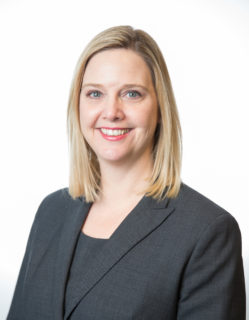
Emily Laidlaw
Associate Professor, University of Calgary, Faculty of Law
Panel 4: Resolving Online Defamation in the Internet Age
Emily is an Associate Professor in the Faculty of Law at the University of Calgary. She spent almost ten years in the United Kingdom where she completed her LLM and PhD at the London School of Economics and Political Science and held a tenure-track lectureship at the University of East Anglia. Before undertaking postgraduate studies, Emily practised for several years in Canada as a litigator, with particular experience in complex corporate and constitutional matters.
She researches, consults and teaches in the areas of the technology law, privacy, media law, intellectual property law and human rights. She has a particular interest in online abuse, intermediary liability, privacy and free speech. Her book, Regulating Speech in Cyberspace: Gatekeepers, Human Rights and Corporate Responsibility, was published by Cambridge University Press in 2015. Emily has advised and spoken concerning her research to the European Commission, NGOs, practitioners, judges and the general public. She has been an invited speaker at institutions across the United Kingdom, including Oxford University, the University of Edinburgh and University College London. She is currently an advisor to the Law Commission of Ontario concerning defamation law in the age of the internet.
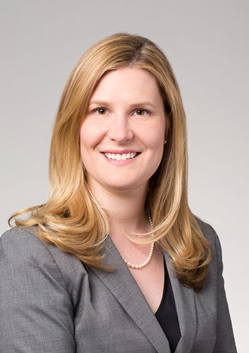
Julia Lefebvre
Practitioner, Bersenas Jacobsen Chouest Thomson Blackburn LLP
Panel 1 Moderator: Rethinking Defamation Law: The Setting for Reform
Julia Lefebvre is an associate at Bersenas Jacobsen Chouest Thomson Blackburn LLP practising civil litigation with a focus on media and defamation law. She is an active member of the Entertainment, Media and Communications Law Section Executive of the Ontario Bar Association (OBA) and Ad IDEM (Canadian Media Lawyers Association). Julia also sits on the OBA’s Governance Committee and is a former member of Council and the Board of Directors.
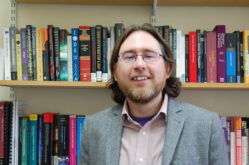
Daithi MacSithigh
Professor of Law and Innovation, Queen’s University Belfast
Conference Rapporteur
Daithí Mac Síthigh is Professor of Law and Innovation at Queen’s University Belfast, and took up this post in September 2017. Previously, he was Associate Dean of Research and Innovation in the Faculty of Humanities and Social Sciences, and Reader in Law, at Newcastle University (England); earlier posts were at the University of Edinburgh (Scotland) and the University of East Anglia (England). His LLB and PhD are from Trinity College Dublin.
Daithí is a member of the Editorial Advisory Board of the Society for Computers and Law, co-editor of the Dublin University Law Journal, book reviews editor of the International Journal of Law and Information Technology, and a member of the editorial board of Communications Law. He is an external examiner at the University of Leeds, Queen Mary University of London, and the University of Sunderland, and a member of the Advisory Board to the Information Law & Policy Centre. Formerly, he was convenor for media and communications law in the Society of Legal Scholars from 2011-2014. He is a panelist for the UDRP dispute resolution mechanism for Internet domain names, provided by the Czech Arbitration Court, and a member of the AHRC’s Peer Review College and the Irish Research Council’s Outer and Inner Assessment Boards. Previous consultancy work has been carried out for Google and for the OECD. He spoke at the launch of the LCO’s discussion paper in November 2017, and gave oral evidence on media regulation to the Leveson Inquiry in the UK.
Daithí has taught defamation law for many years, to law students and journalism students, and as part of media law and tort law syllabi. His relevant publications include his 2017 book Medium Law (where regulatory differences between technologies are discussed, applying the work of Harold Innis in particular to present-day legal questions) and journal articles on intermediary liability, comparative approaches to breach of confidence / privacy, and IT law reform, and book chapters on contempt of court and on the right to communicate.
The Honourable Justice Wendy Matheson
Ontario Superior Court of Justice
Moderator of the Lunchtime Debate on Frontline Issues
The Hon. Justice Wendy Matheson is a judge of the Ontario Superior Court. Prior to becoming a judge, she was a partner at Torys LLP with a broad ranging civil litigation practice including extensive defamation and privacy experience. Justice Matheson is a frequent organizer and faculty member in continuing legal education programs, and was awarded The Advocates’ Society Award for Excellence in Teaching in 2013. She was elected Bencher of the Law Society of Upper Canada in 2010 and served as a Vice-Chair of its Professional Development and Competence Committee. She was also a Director of The Advocates’ Society for two terms, and the Chair of its Education Committee. Justice Matheson is also a Fellow of the American College of Trial Lawyers. She received an LLB in 1986 from Queen’s University, a BMath (Hons., Computer Science) in 1976 from the University of Waterloo.
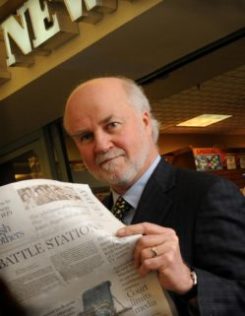
Brian MacLeod Rogers
Barrister, Toronto; Adjunct Professor, Ryerson University School of Journalism
Panel 1: Rethinking Defamation Law: The Setting for Reform
Brian has appeared before all levels of courts, including the Supreme Court of Canada. In particular, he has acted for media interventions in the following cases: Hill v. Scientology (Supreme Court of Canada 1995: qualified privilege libel defence); Bangoura v. Washington Post (Ontario Court of Appeal 2005: jurisdiction in Internet libel); WIC Radio Ltd. v. Simpson (Supreme Court of Canada 2007/8: fair comment libel defence); Quan v. Cusson (Ontario Court of Appeal 2007; Supreme Court of Canada 2009: public interest libel defence); Grant v. Torstar (Supreme Court of Canada 2009: public interest libel defence); R. v. National Post (Supreme Court of Canada, 2009: journalists’ confidential sources). He also acted as counsel for Hamilton Spectator reporter Ken Peters, in successfully appealing a contempt finding for protecting a confidential source (Ontario Court of Appeal 2008).
Brian was founding president of Ad IDEM/Canadian Media Lawyers Association (1998-2000). He was the first Canadian member of the Defense Counsel Section, Media Law Resource Center, a U.S.-based international organization for which he co-authors annual surveys on Canadian libel and privacy laws and was Co-Chair of its International Media Law committee (2008-2013).
Brian is an Adjunct Professor, Ryerson University School of Journalism, and on the Advisory Board of its Centre for Free Expression. He is co-author of Journalists and the Law: How to Get the Story without Getting Sued or Put in Jail (1985) and a chapter entitled “How the ‘Right to be Forgotten’ Challenges Journalistic Principles: Privacy, Freedom and the Durability of News” in The Routledge Handbook of Developments in Digital Journalism Studies (2018). He is author of the Canadian chapter in The International Libel & Privacy Handbook (LexisNexis, 2016). He has authored and edited articles and books on media law, constitutional law and civil litigation and has spoken on those topics at conferences in Canada, United Kingdom and United States.
The Attorney General of Ontario appointed him to the Justice-Media Liaison Committee (2007 to 2011) and the Advisory Panel on Legislation Against SLAPPs (Strategic Litigation Against Public Participation) (2010), which led to Ontario’s adoption of the Protection of Public Participation Act, 2015.
He is peer-rated as “AV” by Martindale-Hubbell and as “most frequently recommended” in defamation and media-related litigation by LEXPERT. He can be reached at brian@bmrlaw.ca or 416-593-1579.
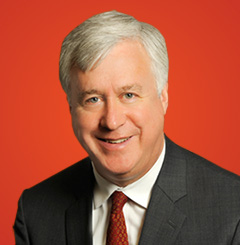
Paul Schabas
Practitioner, Blake, Cassels & Graydon LLP
Lunchtime Debate on Frontline Issues: Jurisdiction
Paul is a senior trial and appellate counsel at Blake, Cassels & Graydon LLP in Toronto. He litigates a wide range of matters, from complex commercial litigation and arbitrations to white collar criminal, tax and regulatory matters. Paul is one of Canada’s leading media and constitutional lawyers, and has expertise in freedom of expression, legal and equality rights, division of powers and judicial independence issues. He has been counsel on many cases before the Supreme Court of Canada, including Grant v Torstar, Canadian Foundation for Children Youth and the Law, Breeden v Black, Toronto Star v Canada, and Morgentaler. He is a Fellow of the American College of Trial Lawyers and the International Academy of Trial Lawyers.
In 2016 Paul was elected Treasurer (President) of the Law Society of Ontario, the governing body for Ontario’s 50,000 lawyers, and over 8,000 paralegals, and has led the legal profession in the province for the past two years. Paul is an adjunct professor at the University of Toronto where he teaches media law. He served as a Bencher (Director) of the Law Society from 2007 to 2016. He been chair of the Law Foundation of Ontario, Pro Bono Law Ontario, and president of the Canadian Media Lawyers Association. Paul is currently a Director of the Canadian Journalism Foundation, the Canadian Civil Liberties Association, and the Osgoode Society. He writes and speaks frequently, in Canada and abroad, on media, constitutional and other legal issues.

Andrew Scott
Associate Professor in Law, London School of Economics
Panel 1: Rethinking Defamation Law: The Setting for Reform
Andrew Scott is a graduate of Queen’s University, Belfast (LLB Hons, MPhil) and the University of Wales (PhD). He held a senior lectureship at Norwich Law School, UEA before taking up a post at the London School of Economics in 2006.
Andrew’s research focus is the constitution of the public sphere. His current research agenda includes projects on the laws of defamation and privacy, the interplay between defamation and religious faith, freedom of expression and access to information, corporate power and the public sphere, and the regulation of journalistic newsgathering practices.
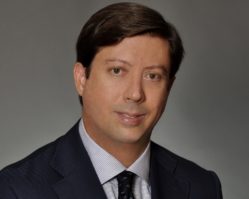
Randall Stephenson
D.Phil. (Oxon) (Doctor of Laws)
Panel 2: The Harms and Values Underlying Defamation Law in the Internet Age
Randall Stephenson is a scholar of defamation law and public law. He completed his D.Phil. in law at the University of Oxford in 2017. Before attending Oxford, he studied first amendment jurisprudence at Columbia University (LLM) and practiced litigation at Osler, Hoskin & Harcourt LLP in Toronto, Canada. His upcoming book, A Crisis of Democratic Accountability: Public Libel Law and the Checking Function of the Press (Hart Publishing 2018), undertakes a comparative study of the public interest and political speech defences in defamation law, including the misuse of democratic free expression justifications. It argues that the law and legal approach taken in the UK, Australia, New Zealand, Canada, and the United States are undertheorized, lack adequate criteria for determining the correct form of the defence, and would benefit from a more precise understanding of “democracy,” “representation,” and “accountability.” Randall’s postdoctoral research includes analyzing the rise and constitutional significance of WikiLeaks and whistleblowing, establishing appropriate limits to judicial “authorization” of mass surveillance of digital communications, and assessing the legal and accountability implications of “fake news.”
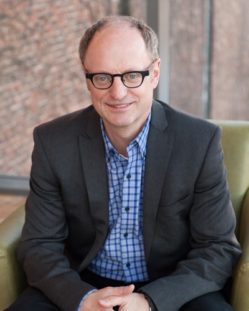
Nye Thomas
Executive Director, Law Commission of Ontario
Nye Thomas is the Executive Director of the Law Commission of Ontario. Nye has more than 20 years experience leading sophisticated, multidisciplinary projects in Ontario’s justice sector. As ED of the Law Commission, Nye is responsible for producing independent and evidence-based analysis and recommendations on complex law reform issues. Nye is currently leading LCO projects on Internet defamation, legal rights in the last stages of life, class actions, and law reform and technology issues. Prior to this, Nye was Director General, Policy at Legal Aid Ontario (LAO) where he was responsible for policy development, consultations, and system planning at one of the world’s largest legal aid plans. Nye’s work at LAO included leading the most significant expansion of legal aid services in more than 20 years. Nye has also been Policy Director on major provincial inquiries, including the Ipperwash Inquiry. Nye studied at the University of Toronto (BA), Queen’s University (LLB), and New York University (LLM).
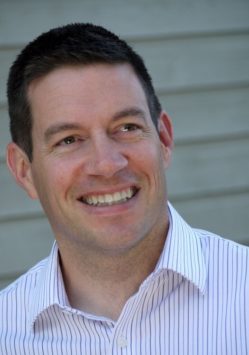
Darin Thompson
Legal Counsel, British Columbia Ministry of Attorney General
Panel 4: Resolving Online Defamation in the Internet Age
Darin Thompson is Legal Counsel with the BC Ministry of Attorney General. He has helped to initiate multiple projects using online dispute resolution (ODR) directly in the public justice system and is a former member of the Canadian delegation to the United Nations Working Group on ODR. In addition to helping create and implement BC’s Civil Resolution Tribunal, Darin has consulted with online court and tribunal initiatives across Canada and in other countries.
Darin is also an adjunct professor of Legal Information Technology at Osgoode Hall Law School and the University of Victoria Faculty of Law and has co-instructed legal knowledge engineering courses at Thompson Rivers University and the University of Ottawa Law schools. He holds a BA (with distinction) and a JD degree from the University of Victoria and an LLM (with distinction) in Innovation, Technology & Law from the University of Edinburgh.
Darin was consulted on the Law Commission of Ontario paper Are we asking too much from defamation law? Reputation systems, ADR, Industry Regulation and other Extra-Judicial Possibilities for Protecting Reputation in the Internet Age in relation to various models of dispute resolution system design.
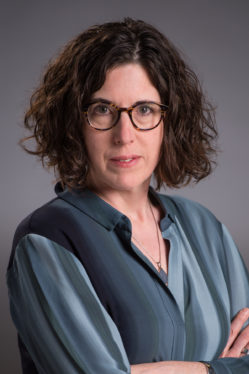
Hilary Young
Professor, University of New Brunswick, Faculty of Law
Panel 3: Responsibility for Defamation and the Problem of Intermediaries
Hilary Young is an associate professor at the University of New Brunswick, Faculty of Law and a defamation scholar. Her publications explore numerous areas of defamation law and practice but she has a special interest in the publication element of defamation. She is currently the sole applicant on a SSHRC-funded project considering internet intermediary liability, as well as defamation’s multiple publication and repetition rules. Professor Young sits on the Advisory Group of the Law Commission of Ontario’s Defamation Law in the Internet Age project and is co-author (with Emily Laidlaw) on a paper commissioned by the Law Commission of Ontario, Internet Intermediary Liability in Defamation: Proposals for Statutory Reform.
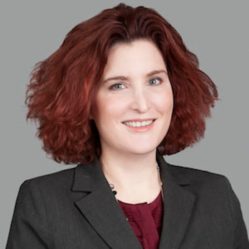
Maanit Zemel
Partner, Zemel van Kampen LLP
Lunchtime Debate on Front Line Issues: Anonymity
Maanit Zemel is a founding Partner of Zemel van Kampen LLP, a technology law and litigation boutique firm in Toronto. Maanit has over 14 years of experience in Internet law and litigation, with particular expertise in defamation, anti-spam and privacy laws. She has represented numerous victims of cyberbullying and anonymous cyberlibel, in identifying and prosecuting their tormentors. When not in private practice, Maanit serves as a part-time Member of the Ontario Landlord and Tenant Board, where she adjudicates disputes between residential landlords and tenants. She is also a Sessional Instructor at the University of Toronto and at Ryerson University.
